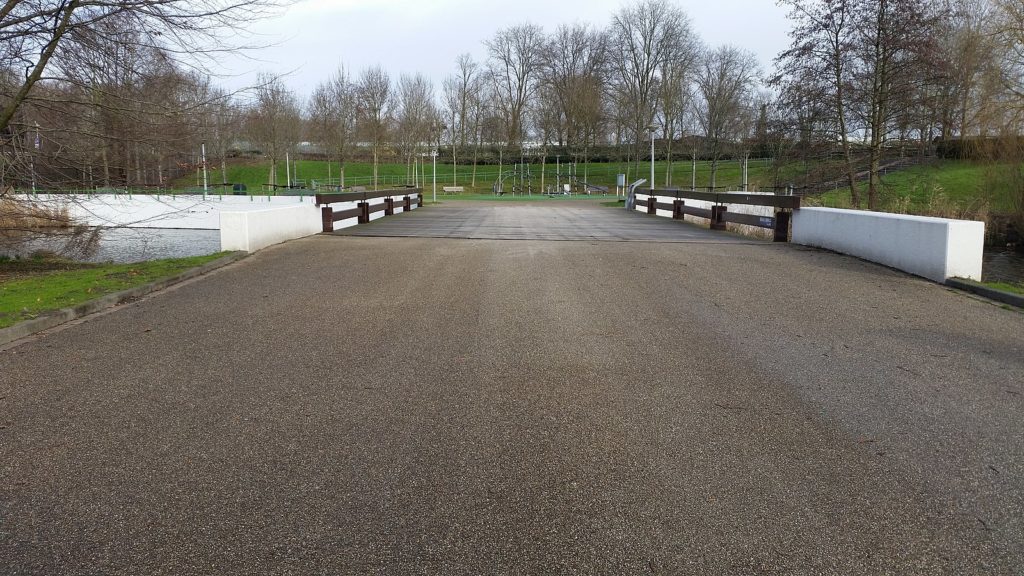If you own a farm or a ranch, you know how much traffic you can get on your ranch roads and paths, and how important it is to keep these roads in good shape. There are a few solutions to look towards when building or updating a ranch road, with gravel, and tar and chip seal being the most popular.

While these two methods of paving a ranch road are some of the most widely used, the use of permeable pavement on ranch roads has become much more prevalent in recent years. There are pros and cons to everything, however, especially the first two methods.
So, in order to get you up to speed on the best way to pave a ranch road, let’s go over what to expect from each material and what might be the best solution for your farm or ranch.
Gravel
Using gravel and gravel only for paving a ranch road is a common practice. Gravel is by far the cheapest option when it comes to paving and this is reason enough for many farm and ranch owners to use it. However, the price is about the only benefit of using loose gravel.
Certain types of cheap gravel will disintegrate easily under foot and vehicle traffic. This leads to dust buildup and turns into mud when it rains. When you run vehicles or animals along these muddy roads they develop ruts rather quickly, which can lead to increased risk for injury or damage to your vehicles.
Gravel also spreads quickly, meaning you’ll have to continuously keep raking it up and redistributing it on your roads, or just keep adding more every time it starts to spread. This can be costly and more importantly, time-consuming.
Tar and Chip Seal
Tar and chip seal is a more permanent option for ranch road paving. It uses a mix of aggregate and liquid asphalt to create a rather inexpensive paved surface, as opposed to using a higher-quality paving material. This is ideal for ranches and farms because the amount of maintenance you’ll have to do on these roads can be significant.

Tar and chip seal is better than loose gravel because it’s a solid surface and will only require resealing every 5 years or so, and resurfacing every 10 years. This is more expensive than just buying more gravel, but the maintenance is much less frequent.
Tar and chip seal is also impermeable, meaning you could see erosion happen along the sides of your ranch roads. Overall, tar and chip seal is one of the most expensive methods of paving ranch roads and not all that durable.
Permeable Pavement
The best option for paving a ranch road is permeable pavement, without question. TRUEGRID PRO LITE and TRUEGRID PRO PLUS pavers, for instance, are made from 100%-recycled plastic and will last up to 60 years with minimal maintenance required.

TRUEGRID pavers are impervious to hot and cold temperatures, UV rays, and drain instantly.. They are durable enough to handle any type of vehicles including fully loadeed semi trucks..and that’s before they’ve been filled with gravel.
Not only that, but TRUEGRID pavers are 100% permeable, allowing you to drain stormwater directly through your ranch roads and into the soil below, without worrying about where the runoff is going. They’re also one of the most eco-friendly paving products on the planet, and they save many gallons of water and pounds of plastic per year.

The installation process for TRUEGRID permeable pavers is also one of the simplest and quickest you’ll find anywhere. It requires only a basic excavation of your ranch roads to a depth of about 10 inches.
Once this is completed, a piece of fabric will be laid at the bottom below the base aggregate to provide separation and optimal drainage. Then, base aggregate is spread and compacted. Next, the TRUEGRID permeable pavers (1.8” tall) are snapped into place as easily as LEGO blocks, and more aggregate is spread over to infill the TRUEGRID’s robust cells.
After the gravel has been compressed into the empty cells of the pavers via heavy roller or vehicle, the installation process is complete. The entire process usually takes less than a day in most cases.
TRUEGRID can also be laid directly over an existing aggregate road. Simply level out existing potholes and ruts…lay your TRUEGRID…and infill. Quick and easy.
Help Your Ranch Roads Last Longer with TRUEGRID Permeable Pavers
When it comes to ranch gravel road ideas, there’s one option that stands above the rest. Loose gravel, as well as tar and chip seal, both have their fair share of drawbacks, especially when compared to TRUEGRID permeable plastic pavers.
Building a ranch gravel road that’s meant to last many decades requires a product like TRUEGRID pavers. If you want to create a permeable, dust-free, reliable ranch road that will last you decades with almost no maintenance, call TRUEGRID today to get in touch with a pavement specialist.



